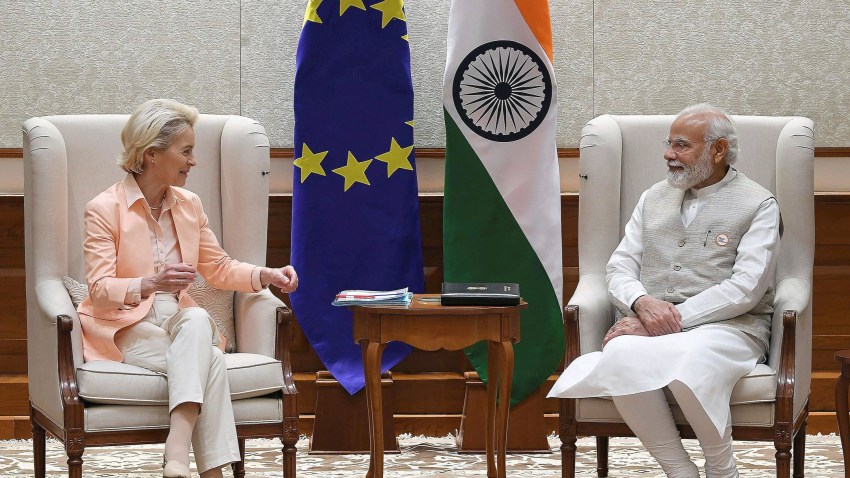Strategic debates in the European Union are currently focused on sustaining the trans-Atlantic alliance to contain Russian aggression, while searching for an approach to China that balances deterrence and engagement. Yet in their preoccupation with managing a declining yet dangerous Russia and navigating tensions between the U.S. and China, policymakers in the EU are not paying adequate attention to India’s emergence as a global power.
Many of the dynamics that are giving India a greater role in a range of geopolitical flashpoints also involve the EU’s core interests. The possible areas of overlap, partnership and rivalry between Brussels and New Delhi are so extensive that both sides would do well to prioritize interactions with each other as much as relations with Washington and Beijing. Instead, the EU’s adoption of the Indo-Pacific concept—the latest strategic fashion in Washington that Brussels is mimicking—to group together regions with very different strategic landscapes has exacerbated its lack of focus on a distinct Indian Ocean region whose dynamics are shaping India’s rise.
When it comes to the Middle East, in particular, India’s deeper involvement in a region that is of enormous importance to the EU is strategically inevitable. For both, the possibility that the U.S. might reduce its footprint in the Middle East to focus on competition with China in the Pacific raises difficult questions about regional security and energy market dynamics that can have an immediate impact on the global economy.

